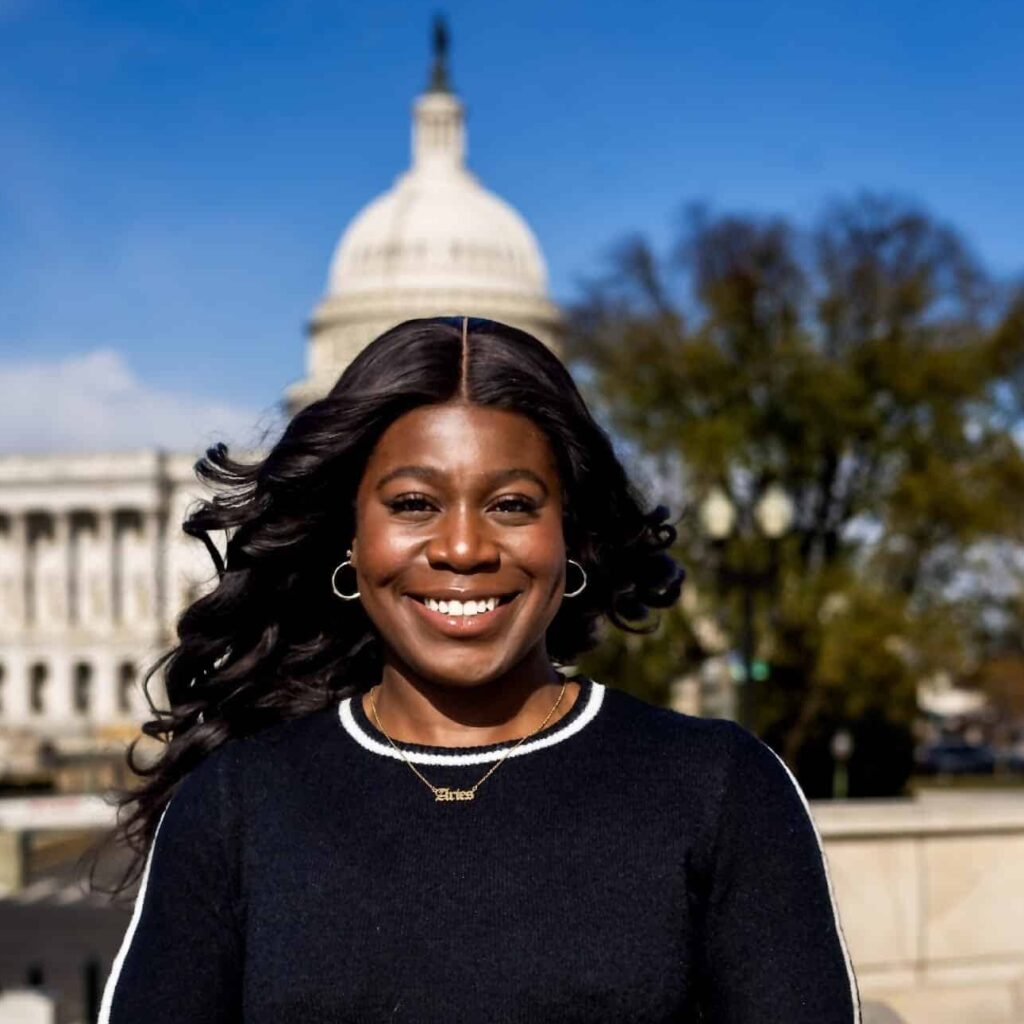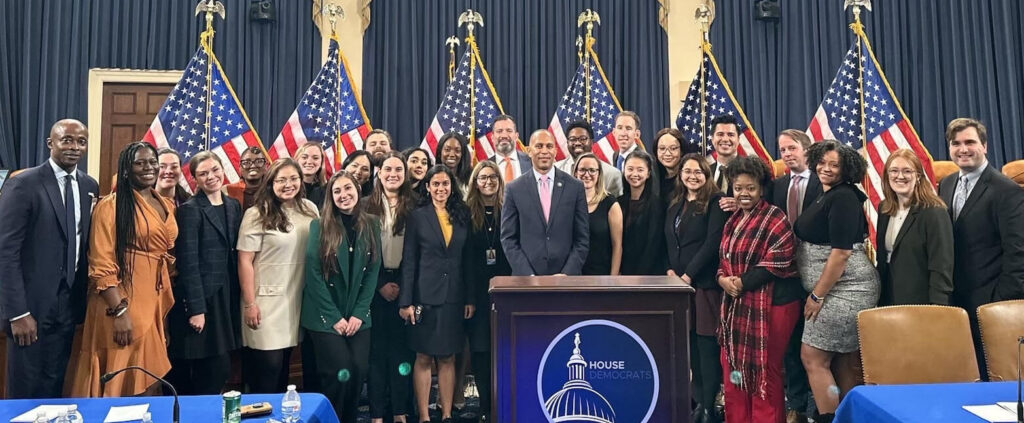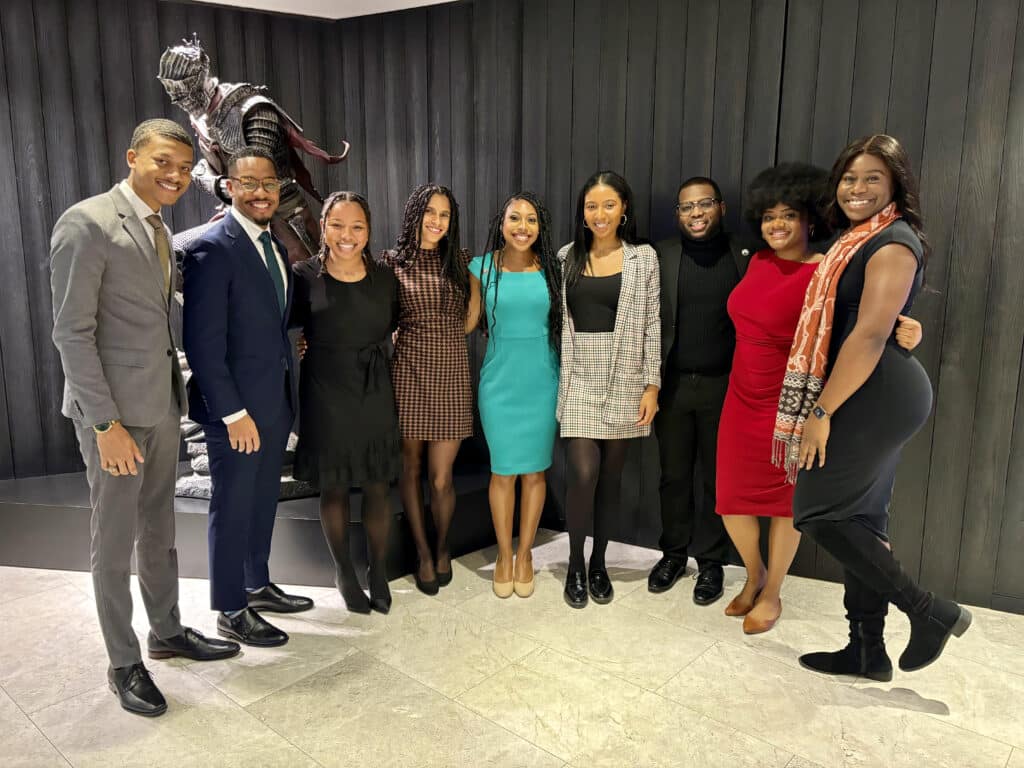
A Q&A with Josephine Amusa
Josephine Amusa serves as a policy advisor for Democratic Leader Hakeem Jeffries (NY-08). In this capacity, she leads all issues related to energy, climate, natural resources and public lands, science and space, animals, and Tribes. Josephine has had key roles in defending and implementing the historic legislation passed in the 117th Congress – the Inflation Reduction Act, the Infrastructure Investment and Jobs Act, and the CHIPS and Science Act – and in crafting House Democrat’s forward-looking energy and climate priorities for the 118th Congress and beyond. Josephine is a New York native and earned her B.A. in Spanish and International Relations from Boston University.
Q: Can you share your career path to becoming a congressional staffer?
A: I began my career fresh out of college as a 3rd-grade math and science teacher in Houston. I, like many teachers, was overworked, underpaid, and underappreciated. During the pandemic, I started to think about whether teaching was a sustainable career and what it would look like to be a policymaker.
Public service and civics underscored my entire teaching career. I did community organizing, addressed implicit bias within our school districts, and worked with grassroots organizations and churches on local elections. During my summers off as a teacher I was even a fellow at the ACLU.
I left teaching and moved to DC in 2020 where I served in a philanthropic fellowship related to education grantmaking. I then served as a Teach for America fellow, which brings a small cohort of teachers to the Hill every year and that launched my policy career. I started in the Office of the Democratic Caucus, and the rest was history.

Q: Why is it crucial to include and uplift the voices of women of color in the halls of Congress and in the environmental policymaking process?
A: When making big decisions on public policy that will impact millions of people, having somebody who can serve as a fact-checker on how policies will or will not create disproportionate impacts is crucial. More times than not, the ball is being dropped simply because there is a lack of presence of people of color, women, and marginalized groups in these spaces.
The upward movement of staff of color and women staffers is another nuanced issue Congress is suffering from. We are often in these spaces but don’t have decision-making power yet. When you look at the distribution of where staffers of color are situated in the hierarchy, you’ll find that the majority of us are not in senior roles. And unfortunately, women of color often bear the brunt of responsibility in terms of sounding the alarm on these issues.
Q: Have you witnessed any changes in culture and community for women, specifically women of color, on Capitol Hill?
I was recently elected as Social Engagement Director for the Congressional Black Associates (CBA), a staff association on the Hill that works in service of Black staffers. As an organization, we’re thinking about how we promote upward mobility and serve as a safe space for our staffers.
CBA partners with other staff associations because we know as Black staffers, we are not a monolith. We have intersectional identities and they show up differently in the workspace. In partnering with these groups we create a sense of unity and solidarity that is much needed in this environment.

At the heart of it, we work together to create opportunities for staff to learn and launch pads for their congressional careers. Staff associations are doing that core work and I’m blessed to have a position on CBA’s executive board to help drive that.
Q: Do you have any advice for women interested in pursuing a career in policy?
A: You never know what is going to come your way so stay nimble and open to things looking different than you planned. In many ways, that’s how I got into the environmental space and it has forever changed my life. Don’t compromise on the things you need to be whole and well, emphasis on well. Folks want to get their foot in the door, but you have to do a cost-benefit analysis and be honest with yourself.
And lastly, identify your communities and don’t be afraid to tap them and ask for help. The person you want to ask a stupid question to has asked someone else 100 stupid questions at some point in their career. Be open to candid feedback and advice that may shift your approach, but ultimately will work towards your betterment.